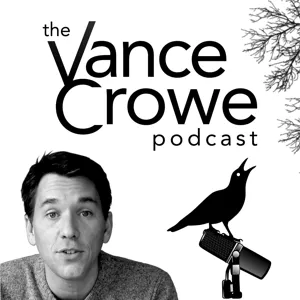Podcast Summary
UAE: New Oil Trading Hub with Record Vessel Traffic: The UAE's strategic location and bullish energy market sentiment have made it a prime destination for energy trading, attracting major independent traders and challenging Switzerland's status as the top oil trading center.
The United Arab Emirates (UAE) has emerged as a major oil trading hub due to the redirection of global energy flows following Western sanctions on Russia. This shift has led to record numbers of oil vessels calling at the Port of Fujairah, with as many as 12,500 vessels stopping at its offshore anchorage area this year. The UAE's strategic location and the bullish sentiment of energy trading executions have made it a prime destination for energy trading, with major independent energy traders like Glencore, Vitol, Trafigura, and Gunvor setting up offices there. For years, Switzerland was known as the world's top oil trading center due to the presence of these traders, but the UAE is now poised to challenge that status and become one of the major energy trading hubs in the world.
New major players in Russian oil trade revealed: Despite Western sanctions, Russian oil trade continues through access to Russian customs data, revealing new major players in the market.
Commodity traders, particularly those dealing with oil, have historically found Switzerland an attractive place to set up shop due to its secrecy and political neutrality. However, following Russia's invasion of Ukraine, there was a public backlash against Western companies doing business with Russia, leading to European sanctions and the departure of major European traders. This left a question of who would take over the trading of Russian oil. Obtaining concrete information on this matter was challenging due to reduced official statistics and the secretive nature of the involved companies. However, through access to Russian customs data, it was possible to gain a clearer picture of the new major players in the Russian oil trade.
UAE: The New Hub for Russian Oil Trade: The UAE has become the world's largest trading partner for Russian oil, with around $17bn worth traded in the first four months of 2023. Dubai's stance on Russian oil differs from Western capitals, allowing for significant trade growth in the oil industry.
The United Arab Emirates (UAE) has emerged as the world's most significant trading spot for Russian oil during the first four months of 2023. According to customs data, companies registered in the UAE moved around $17 billion worth of oil, representing about a third of Russia's exports. This boom in Russian oil trading is not limited to this commodity, as Dubai is now being referred to as the new Geneva in the oil industry. The UAE's stance on Russian oil differs from Western capitals, where doing business with Russia is seen as morally wrong due to sanctions. In contrast, the UAE's legal framework does not prohibit such trade, and there's no distinction between Russian and other customers. Two categories of traders have set up operations in the UAE. Established trading houses like Gunvor have created separate structures to trade Russian oil while complying with the G7's price cap. However, a much larger group consists of newly established, lesser-known companies that collectively move $1 billion of Russian oil a month. Most of these companies didn't exist before the war and raise concerns due to their unclear ownership and recent incorporation. The UAE's role as a major hub for Russian oil trade highlights the complexities and shifting dynamics of the global oil market in response to geopolitical events.
UAE: Hub for Russian Oil Trading Despite Limited Physical Presence: The UAE has become a significant player in Russian oil trading, with most transactions occurring electronically or over the phone, and the majority of the oil being shipped directly to new buyers in Asia, Africa, and South America, due to the war in Ukraine and European Union's embargo on Russian oil imports.
The UAE has emerged as a major hub for Russian oil trading due to its perceived political neutrality and attractive business environment, despite only a small percentage of the oil physically touching Emirati soil. The majority of the oil is traded electronically or over the phone and is then shipped directly to new buyers in Asia, Africa, and South America. This shift in energy flows is a significant consequence of the war in Ukraine, as the European Union's embargo on Russian oil imports has led to China and India becoming the largest destinations for Russian crude. Publicly, neither the US nor the EU has commented on this trading activity, which raises concerns about potential logistical disruptions, accidents, and the use of untested shipping companies and insurance companies. The commodity industry, which had made progress towards transparency in recent decades, is facing setbacks due to the rise of these new companies and the shift in trading patterns.
Middle East Emerges as Global Oil Trading Hub: The Middle East, led by the UAE, is becoming a major player in the global oil trading industry due to high oil prices and resulting wealth transfers, making Dubai an emerging preeminent energy trading hub.
The shift of oil trading from Switzerland to the UAE, precipitated by Russian oil, is a significant economic development that speaks to a broader trend of the Middle East becoming an increasingly important global center for the commodity trading industry. The UAE and Middle Eastern producers saw huge wealth transfers during last year's high oil prices, and this wealth is now feeding into other sectors, making Dubai an emerging preeminent energy trading hub. This economic shift is likely to continue even if the war ends, as more traders relocate there. The transfer of wealth from consuming countries to producing countries during high commodity prices is a recurring phenomenon, and this trend is being demonstrated through the shift to Dubai in the oil trading industry.





